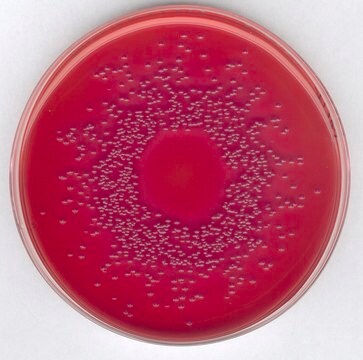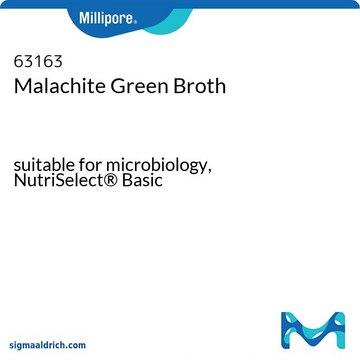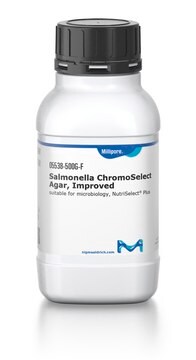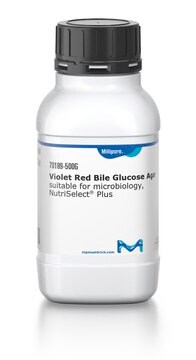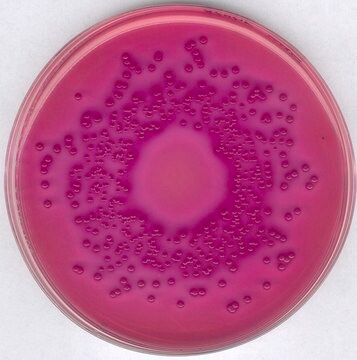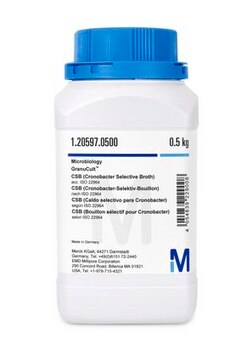67616
Enterobacteria Millichrome™ plus Agar
suitable for microbiology
Synonym(s):
Enterobacteria chromogenic agar
About This Item
Recommended Products
agency
EP
JP
USP
Quality Level
sterilization compatibility
dry heat compatible
form
dry powder
shelf life
limited shelf life, expiry date on the label
composition
Agar, 11.0 g/L
Chromogenic and selective mix, 0.7 g/L
Mineral salts, 4.9 g/L
Peptones and yeast extract, 22.0 g/L
manufacturer/tradename
MilliChrome™
technique(s)
microbiological culture: suitable
final pH
7.4±0.2 (25 °C)
solubility
deionized water: 42.3 g/L
application(s)
food and beverages
microbiology
shipped in
ambient
storage temp.
15-25°C
suitability
selective for bacteria: Enterobacter spp.
General description
Application
Preparation Note
- Disperse slowly 42.3 g of powder base in 1 L of purified water.
- Stir until agar is well thickened.
- Heat and bring to boil (100 °C) while swirling or stirring regularly.
DO NOT HEAT TO MORE THAN 100 °C. DO NOT AUTOCLAVE AT 121 °C.
Warning: If using an autoclave, do so without pressure.
Step 2 (Cooling)
- Cool in a water bath to 45-50 °C.
- Swirl or stir gently to homogenize.
- Pour medium into Petri dishes.
- Let solidify.
- Let plates dry.
Storage and Stability
Analysis Note
Legal Information
signalword
Warning
hcodes
Hazard Classifications
Skin Sens. 1
Storage Class
11 - Combustible Solids
wgk_germany
WGK 3
Choose from one of the most recent versions:
Certificates of Analysis (COA)
Don't see the Right Version?
If you require a particular version, you can look up a specific certificate by the Lot or Batch number.
Already Own This Product?
Find documentation for the products that you have recently purchased in the Document Library.
Our team of scientists has experience in all areas of research including Life Science, Material Science, Chemical Synthesis, Chromatography, Analytical and many others.
Contact Technical Service
